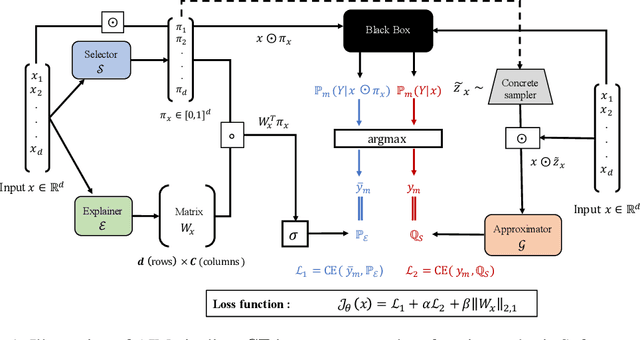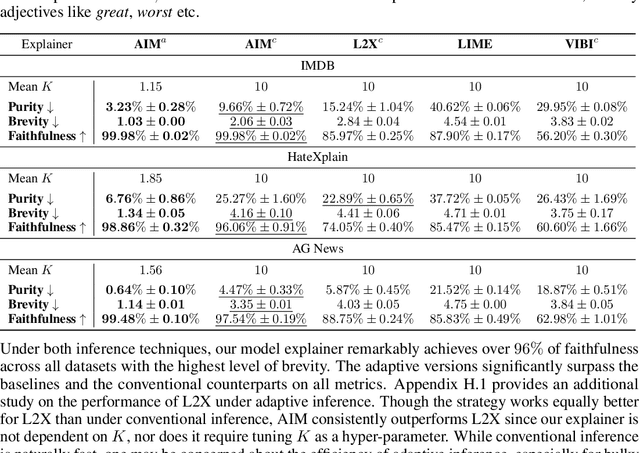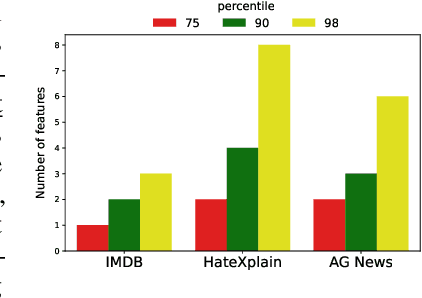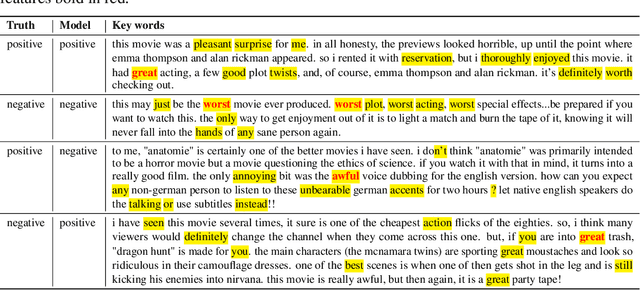An Additive Instance-Wise Approach to Multi-class Model Interpretation
Paper and Code
Jul 07, 2022



Interpretable machine learning offers insights into what factors drive a certain prediction of a black-box system and whether to trust it for high-stakes decisions or large-scale deployment. Existing methods mainly focus on selecting explanatory input features, which follow either locally additive or instance-wise approaches. Additive models use heuristically sampled perturbations to learn instance-specific explainers sequentially. The process is thus inefficient and susceptible to poorly-conditioned samples. Meanwhile, instance-wise techniques directly learn local sampling distributions and can leverage global information from other inputs. However, they can only interpret single-class predictions and suffer from inconsistency across different settings, due to a strict reliance on a pre-defined number of features selected. This work exploits the strengths of both methods and proposes a global framework for learning local explanations simultaneously for multiple target classes. We also propose an adaptive inference strategy to determine the optimal number of features for a specific instance. Our model explainer significantly outperforms additive and instance-wise counterparts on faithfulness while achieves high level of brevity on various data sets and black-box model architectures.
 Add to Chrome
Add to Chrome Add to Firefox
Add to Firefox Add to Edge
Add to Edge